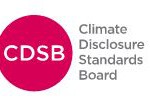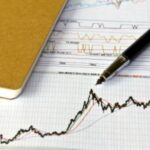
The IFRS Foundation’s COP 26 announcement of the establishment of an International Sustainability Standards Board (ISSB) would not be a surprise to those following the discussions. Nor would its soaking up of the frameworks and Standards of the VRF (formerly SASB and the IIRC) and CDSB. The recognition that investors need more information in today’s complex world of interlinked threats than is conveyed in today’s balance sheets has taken a while to register. There is much to be done to increase reporting on sustainability risks and opportunities and their incorporation into board strategy. Reporting on these matters remains extremely low even amongst the largest and most impacted companies. Two pillars are better than one.
Evidence indeed points to the need for mandatory reporting on both an organisation’s impact on sustainable development and the threats posed by sustainable development issues to organisations.
In its response to the announcement Accounting for Sustainability (A4S) noted: “The Global Reporting Initiative (GRI) currently sets the most widely-adopted standards in this area, and it is therefore critical that the ISSB collaborates with GRI to ensure that both sets of standards are consistent and aligned with one another. This is important not only to avoid confusion and duplication of effort, but also because an organization’s impact on the world can quickly ‘bite back’ to hit financial performance if not addressed.”
The way the IFRS Foundation has situated itself in relation to the GRI’s Global Sustainability Standards Board (GSSB) does not bode well for such collaboration. To start with, there’s the name. One word difference – International rather than Global. Whether or not its legally allowed, it seems unnecessarily provocative, particularly when an enterprise value/ cash flow approach has nothing to do with the impacts of an organisation on society or the environment – the focus of the GRI guidelines (later Standards) since 2000. Is it an attempt to redefine sustainability to be about companies rather than people and planet?
There was the matter of the first consultation question regarding whether there was a need for a global set of standards (as if there wasn’t already one) and the implication that the IFRS Foundation was best placed to deliver them with its sound governance structures and experience. No analysis was undertaken of desirable governance structures of a sustainability standard setter nor of the governance of GRI (modelled on that of accounting standard setters but with multi-stakeholder representation).
Then there’s the lack of consultation with GRI to date. It is the only sustainability standard setter that has not been involved in the IFRS Foundation’s Technical Readiness Working Group on sustainability reporting. The excuse put forward is that it is not concerned with investor needs. In fact, it has had investors in its governance structures and on the GSSB for some years. Board member, Jack Ehnes, for example, is former CEO of US pension fund CalSTRS. GSSB member Evan Harvey is the Global Head of Sustainability at Nasdaq in the USA. The GRI Stakeholder Council has seven members from investment institutions. GRI, knows what information investors want about corporate impacts on sustainable development and what information stakeholders need to maintain the trust that makes or breaks companies. GRI’s press releases repeatedly express a willingness to engage.
In a subtle shift in focus the IFRS Foundation’s sustainability-related financial information prototype now defines materiality to include “an entity’s impacts on society and the environment, if those impacts could reasonably be expected to affect the entity’s future cash flows“. GRI’s principles-based approach will get to that, but also, as A4S point out, provide advanced warning. Some will consider it better than the vagueness of determining what can ‘reasonably be expected’ to become monetary or the near impossibility of determining how, how much or when that might occur.
In a less subtle shift in focus, the ‘climate-related disclosure prototype’ includes metrics on water, waste and raw material sourcing. GRI Standards, developed over 20 years, do these metrics better. Not only are the IFRS Foundation’s prototype metrics beyond core climate-related issues (and others are missed) it proves the challenge of the framing reporting on impacts of the organisation around what can “reasonably be expected to affect the entity’s future cash flows”. (Also worth noting here that the WEF indicators that the IFRS Foundation refers to are a subset of GRI Indicators – WEF is not a standard setter.) There is an urgent need, and much work to be done, to increase disclosures on matters covered in the TCFD recommendations and SDGD Recommendations that are obviously financially material and not within GRI’s purview.
One might reasonably wonder what the IFRS Foundation’s intentions really are. Would we have confidence in the IFRS Foundation setting standards covering impacts of the organisation on sustainable development? The IFRS Foundation have already signalled no need to explicitly require sustainability expertise on all their governing and advisory bodies (and the advisory bodies they’ll absorb from the VRF were not established with expertise in reporting on the impacts of an organisation in mind). Can a private sector body that has put itself forward to take an “investor perspective” be trusted to have a focus on sustainable development? I think not. Collaborating with GRI and seeking to support those standards also being mandatory would give the IFRS Foundation’s financial-related sustainability disclosure requirements credibility and context. And it would give governments and other stakeholders more confidence that companies were being held accountable for their impacts. The IFRS Foundation’s urgent priority should be to ensure sustainable development risks and opportunities are disclosed (something the IIRC did not explicitly address in its revision of the integrated reporting framework).
Comments welcome on LinkedIn here.
Carol Adams is Professor of Accounting at Durham University Business School, UK. She has worked with a number of organisations mentioned in this article. The views expressed are her own.



